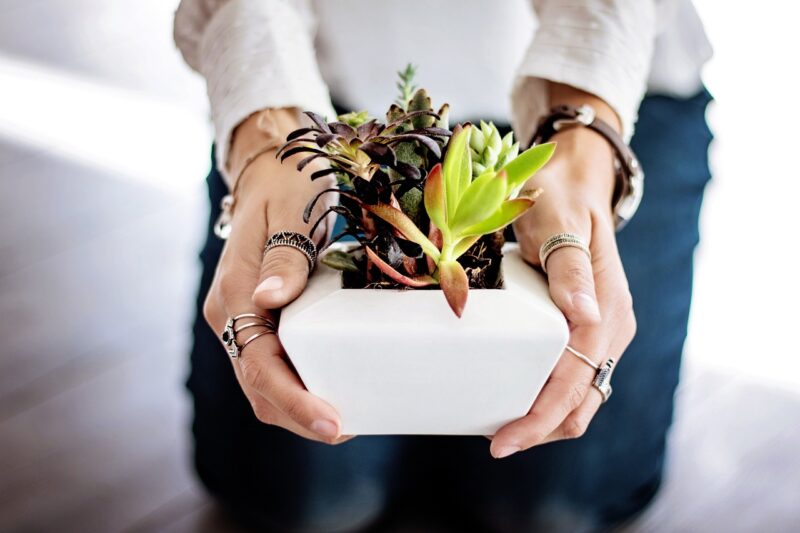The Science of Growing Plants Indoors and Why It Benefits Mental Health
November 12, 2024

In recent years, houseplants have surged in popularity, and for good reason. Not only do they beautify our living spaces, but they also contribute significantly to our mental and emotional wellbeing. Studies have shown that indoor gardening can have profound effects on mental health, enhancing mood and reducing stress levels. This article delves into the science behind growing plants indoors, exploring the psychological benefits they offer to those who cultivate them.
1. The Psychology of Plants in Our Lives
The presence of plants can profoundly influence our psychological state. Research indicates that indoor plants can elevate mood, reduce anxiety, and improve creativity. A study published in the Journal of Environmental Psychology found that individuals who interacted with plants exhibited a marked reduction in stress and anxiety levels. This response is attributed to several factors, which we will explore below.
2. Nature’s Positive Influence: The Biophilia Hypothesis
The biophilia hypothesis posits that humans have an innate affinity for nature, stemming from our evolutionary history. This connection explains why plants can have a calming and restorative effect on our minds. Having greenery in our homes allows us to maintain a connection to nature, promoting feelings of tranquility and comfort. Such a connection, even when artificial, plays a crucial role in our overall mental health and wellbeing.
3. Physiological Benefits of Indoor Gardening
Interacting with plants, whether through watering, repotting, or pruning, can elicit a direct physiological response in the body. Engaging in these activities can stimulate the production of serotonin, a neurotransmitter known as the ‘feel-good’ chemical. Furthermore, the act of nurturing plants provides a sense of accomplishment and purpose, which can mitigate feelings of depression and anxiety.
- Improved Air Quality: Plants naturally filter the air, absorbing carbon dioxide and releasing oxygen. Improved air quality contributes to better overall health, which in turn supports a positive mental state.
- Increase in Humidity: Indoor plants help maintain humidity levels, thus reducing symptoms of dryness and irritation in the respiratory tract, further enhancing comfort within our living spaces.
- Reduction of Stress Hormones: Studies have shown that plants can decrease cortisol levels in the body. Lower cortisol levels are associated with reduced stress, fostering a sense of calm and wellbeing.
4. The Therapeutic Effects of Gardening
Gardening therapy, or horticultural therapy, is a well-recognized method of using gardening as a therapeutic practice. This form of therapy leverages the act of planting and caring for plants to facilitate mental healing. The tactile nature of gardening helps soothe anxiety, while the meditative aspects of planting promote mindfulness. Engaging with soil and growth encourages us to slow down, focus, and reflect, which can be cathartic and restorative.
Healthcare institutions such as hospitals and rehabilitation centers increasingly incorporate gardens and plant therapy into their facilities, recognizing the multifaceted benefits plants provide to patients recovering from illness or trauma.
5. Enhancing Environment and Lifestyle with Indoor Plants
Creating a plant-rich environment positively impacts not just mood but productivity as well. People who work in green spaces or at home surrounded by plants report higher levels of focus and creativity. Plants can break the monotony of work-from-home environments by creating visually stimulating and engaging spaces that encourage individuals to thrive.
Incorporating a variety of plants, such as snake plants, pothos, and succulents, into your indoor space can enhance both aesthetics and mental wellbeing. Each species offers different air-purifying benefits and thrives under varying levels of care, making it easier for anyone to start their indoor gardening journey regardless of experience.
6. Tips for Starting Your Indoor Garden
If you’re considering starting your own indoor garden, here are a few tips to get you started:
- Choose Easy-to-Care Plants: Start with low-maintenance plants like spider plants, peace lilies, or succulents. These plants are resilient and can thrive under various conditions, making them great for beginners.
- Assess Space and Light: Know the amount of natural light your chosen space receives. Some plants require bright, indirect light, while others can thrive in low-light conditions.
- Regular Care Routine: Establish a watering and care routine. Regularly check on your plants to ensure they are healthy, as this interaction can foster a nurturing mindset.
- Experiment with Plant Arrangements: Get creative with how you arrange your plants. Using a combination of heights and types can create a visually appealing display that can also help elevate your mood.
Embarking on the journey of indoor gardening is not just about cultivating plants but also nurturing your mental space. The satisfaction that comes from tending to living things can spark joy and serve as a beneficial coping mechanism in stressful times.
Conclusion
Growing plants indoors isn’t merely an aesthetically pleasing endeavor; it is a path to improved mental health and emotional wellbeing. By harnessing the therapeutic benefits of nurturing plants, you can create a sanctuary within your own home that fosters relaxation, mindfulness, and resilience against stress. Whether you are a seasoned gardener or new to the concept, the benefits of indoor gardening can positively impact your life in ways you might not have anticipated.
Take the first step in cultivating not just plants, but also a healthier, happier you. Start your indoor gardening journey today and experience the myriad benefits it has to offer for your mental health and emotional resilience.








